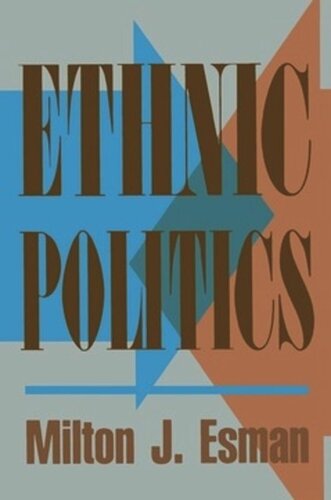

Most ebook files are in PDF format, so you can easily read them using various software such as Foxit Reader or directly on the Google Chrome browser.
Some ebook files are released by publishers in other formats such as .awz, .mobi, .epub, .fb2, etc. You may need to install specific software to read these formats on mobile/PC, such as Calibre.
Please read the tutorial at this link: https://ebookbell.com/faq
We offer FREE conversion to the popular formats you request; however, this may take some time. Therefore, right after payment, please email us, and we will try to provide the service as quickly as possible.
For some exceptional file formats or broken links (if any), please refrain from opening any disputes. Instead, email us first, and we will try to assist within a maximum of 6 hours.
EbookBell Team

5.0
38 reviewsIn this timely book Milton J. Esman surveys a recurrent and seemingly intractable factor in the politics of nations: ethnicity. As the author notes, virtually no contemporary nation-state is ethnically homogeneous. Most address the political effects of domestic ethnic difference, and many fail in the attempt—with devastatingly violent results.Esman focuses on ethnic mobilization and the management of conflict, on the ways ethnic groups prepare for political combat, and on measures that can moderate or control ethnic disputes, whether peaceful or violent.Opening with a broad synopsis of current understandings of ethnicity and its varying political salience, he illustrates his theories by analyzing experiences in South Africa, Israel-Palestine, Canada-Quebec, and Malaysia. He also outlines the political issues and dilemmas, transnational as well as domestic, caused by the vast labor migrations of Mexicans to the United States, North Africans to France, Turks to Germany, and Koreans to Japan.Can economic growth and prosperity ease ethnic conflicts? Esman addresses this question and draws conclusions based on the empirical chapters. In his view, ethnic pluralism and ethnic politics are not collective psychoses or aberrations, to be deplored and exorcised, but rather pervasive realities that observers can confront and politicians can manage.